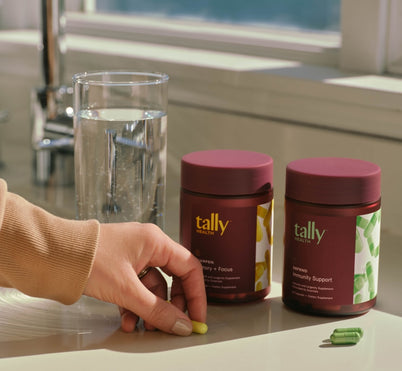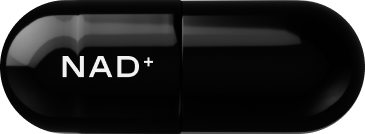

Quercetin may not be a household name yet, but this plant pigment is quietly making waves in the world of health and longevity science. Found in foods like apples, red grapes, onions, and green tea, quercetin belongs to a group of dietary flavonoids with remarkable antioxidant and anti-inflammatory properties.
Researchers have studied the health benefits of quercetin for decades, and new evidence continues to reveal how this natural compound supports the immune system, heart health, and even metabolic balance. Whether through quercetin supplementation or by boosting your dietary intake of quercetin-rich foods, this flavonoid may offer powerful, science-backed effects that help protect your cells and promote healthy aging.
Let’s break down the reported benefits of quercetin—and why you may want to add it to your daily health routine.

1. Quercetin as a Strong Antioxidant
One of quercetin’s most celebrated roles is its ability to neutralize free radicals and reduce oxidative stress—a key driver of chronic inflammation and age-related decline. By protecting cells from oxidative damage, quercetin may help lower the risk of cardiovascular disease, improve endothelial function in blood vessels, and regulate inflammatory processes at the cellular level.
In both animal research and clinical trials, oral administration of quercetin has been linked to reduced inflammatory markers, decreased platelet aggregation, and better plasma lipid profiles. These antioxidant effects make quercetin one of the most promising natural substances for supporting long-term health.
2. Anti-Inflammatory Benefits of Quercetin
Quercetin also acts on multiple inflammatory factors, including the release of mast cells and modulation of gene expression tied to inflammation. These anti-inflammatory effects can lower disease severity in conditions ranging from respiratory system issues like allergies to metabolic challenges such as polycystic ovary syndrome (PCOS).
Some studies even suggest quercetin may help regulate blood glucose and lower blood sugar levels—pointing toward potential therapeutic effects for metabolic and cardiovascular health.
3. Quercetin and Heart Health
The potential cardiovascular benefits of quercetin are especially interesting. As a cardiovascular agent, quercetin has been reported to relax blood vessels, support nitric oxide production, and lower blood pressure. This is particularly important because oxidative stress and chronic low-grade inflammation are contributors to heart disease.
Regular dietary intake or quercetin supplementation may thus play a role in reducing the risk of cardiovascular events—although more research is still needed, especially in healthy adults across diverse populations.
4. Quercetin for Immune Support and Allergy Relief
Beyond the heart, quercetin’s immune support potential is also exciting. Studies suggest that taking quercetin may stabilize mast cells, helping to reduce allergic reactions and improve respiratory system function. This is why quercetin often appears in herbal supplements marketed for allergy relief and seasonal immune defense.
Its synergy with vitamin C also enhances absorption and therapeutic activity, making the combination a powerful duo for immune system resilience.
5. Quercetin and Exercise Performance
Emerging research points to quercetin’s role in helping improve exercise ability. By reducing oxidative stress and improving mitochondrial efficiency, quercetin may boost endurance, oxygen use, and recovery in active individuals. Some control group vs. placebo group research even suggests modest improvements in exercise ability following quercetin supplementation.
Food Sources of Quercetin

Before reaching for quercetin supplements, you can also increase your dietary intake of this flavonoid through whole foods. Common food sources include:
Red grapes
Apples
Onions
Broccoli
Berries
Green tea
Coffee
While these foods deliver meaningful amounts, higher doses required for specific therapeutic efficacy may be easier to achieve with other supplements.
Should You Try Quercetin Supplements?

Quercetin is generally well-tolerated in healthy adults when consumed in a certain dose range. Clinical trials suggest safety and effectiveness at common doses, though—as with all new supplements—it’s wise to discuss taking quercetin with a healthcare professional, especially if you’re managing existing health conditions.
At Tally Health, we’ve incorporated quercetin into two science-backed formulations:
Defend – designed for daily immune support, featuring quercetin alongside other synergistic nutrients to help combat inflammaging and support resilience.
Vitality – our foundational longevity supplement, where quercetin works in tandem with other natural compounds to target oxidative stress and support healthy aging at the cellular level.
By including quercetin in both of these advanced formulas, we help get the most from this powerful plant pigment without having to juggle multiple standalone products.
The Bottom Line

From its reported antioxidant properties and anti-inflammaging benefits to evidence for a role in blood pressure regulation, immune support, and even potential exercise performance gains, quercetin is one of the most exciting natural compounds in modern health science.
While food sources like red grapes and onions are great for everyday dietary intake, targeted quercetin supplementation may unlock its full therapeutic effects. Whether you’re aiming to support your immune system, protect your heart, or defend against oxidative damage, quercetin is a safe, science-backed ally worth considering.
References
Li et al. Quercetin, Inflammation and Immunity. Nutrients 2016; https://doi.org/10.3390/nu8030167
Mlcek et al. Quercetin and Its Anti-Allergic Immune Response. Molecules 2016; https://doi.org/10.3390/molecules21050623
Deepika and Maurya. Health Benefits of Quercetin in Age-Related Diseases. Molecules 2022; https://doi.org/10.3390/molecules27082498
Cui et al. Therapeutic application of quercetin in aging-related diseases: SIRT1 as a potential mechanism. Front Immunol 2022; https://doi.org/10.3389/fimmu.2022.943321
Aghababei and Hadidi. Recent Advances in Potential Health Benefits of Quercetin. Pharmaceuticals (Basel) 2023; https://doi.org/10.3390/ph16071020
What are the main benefits of quercetin?
Quercetin is a powerful flavonoid with antioxidant and anti-inflammatory properties. Research suggests it may support heart health, immune function, allergy relief, metabolic balance, and even exercise performance.
What foods are high in quercetin?
Common food sources of quercetin include red grapes, apples, onions, broccoli, berries, green tea, and coffee.
Is quercetin supplementation safe?
Quercetin is generally well-tolerated in healthy adults at common doses tested in clinical trials.










